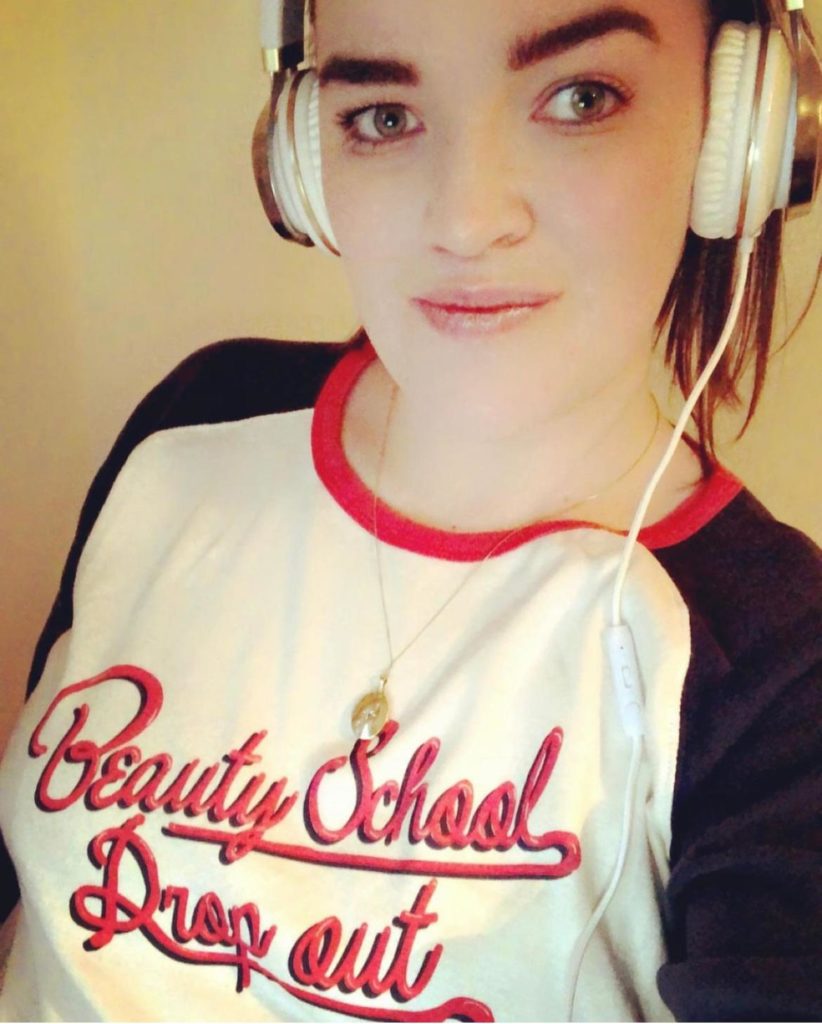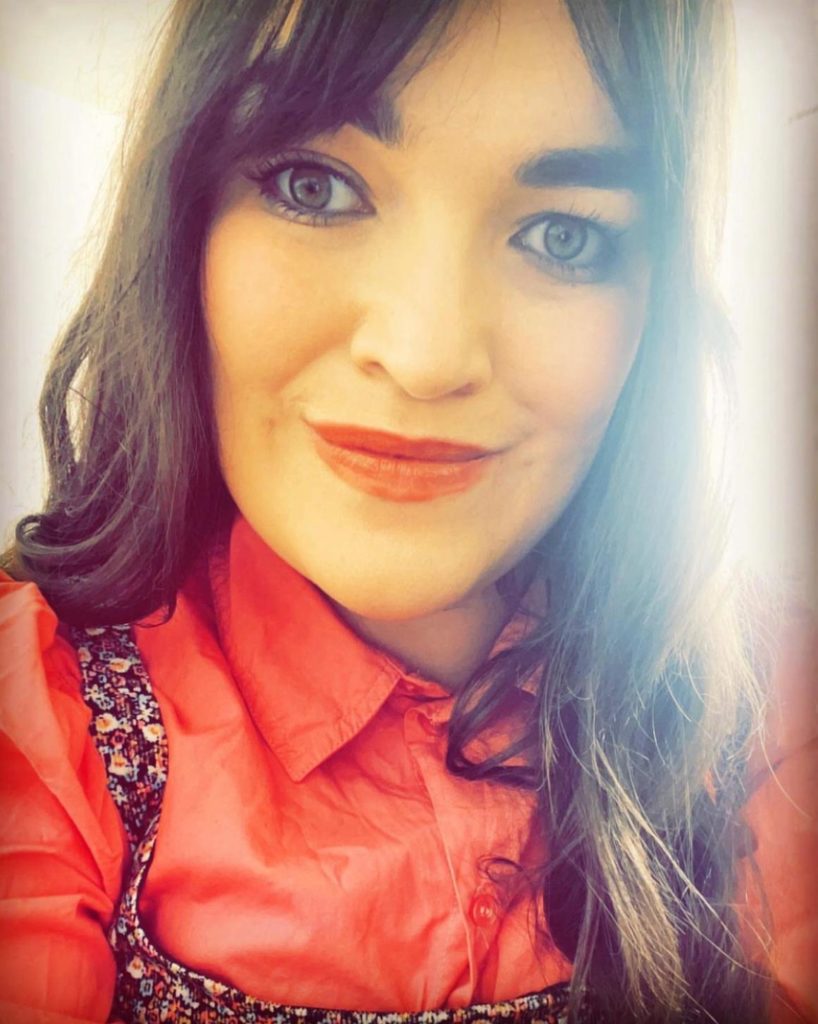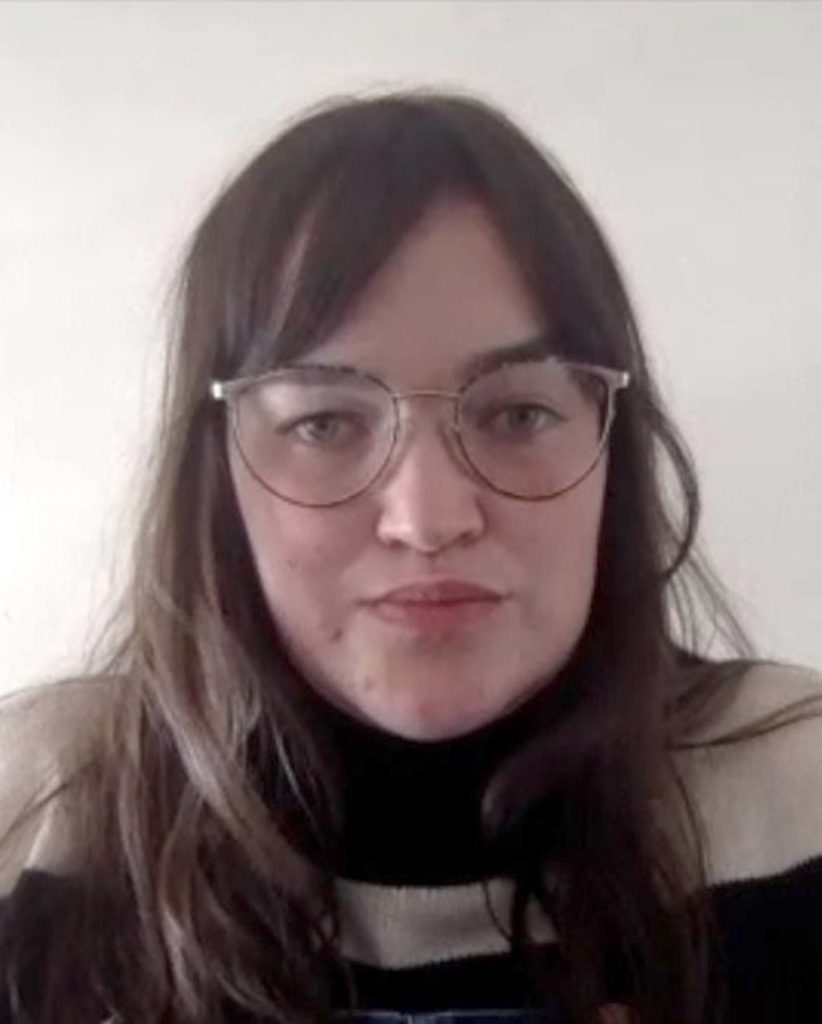Roisin’s Story
Roisin just wanted to understand her dyspraxia. She was delighted by the changes she experienced. They included improvements in reading, comprehension, and the way her eyes looked. She also stopped bumping into things and falling over.
Roisin just wanted to do a media piece on her dyspraxia for her BA Broadcasting dissertation when we got involved. She shared her podcast with us.
Find links to her podcasts at the end of this article
The remainder of this article is in Roisin’s words.

Why I Contacted Oxford Specialist Tutors
When I first contacted Oxford Specialist Tutors, I wanted a deeper understanding of dyspraxia and how it affected my body and motor skills.
I had done physiotherapy, occupational therapy and other things as a child, but I still had challenges that I wanted to address.
I was very clumsy, bumping into door frames several times a week. So much so that one of my brothers used to laugh at me when I bumped into things.
And I was falling down stairs and falling in the street with remarkable regularity. Some of my falls were quite serious.
I was also concerned about my left eye. I was partially blind in that eye, and it was moving further and further out to the left.
Apart from being embarrassed about how it looked, it also impaired my ability to read. I just couldn’t pay attention to written text for long enough to process it.
When I spoke with Margo, I learned that this is something that is quite common for people with dyspraxia, and I was relieved to hear that it might be something that could be addressed by their neurodevelopmental programme.
Getting Started
At the start of the programme, I completed two informational forms and shared short videos of myself in various situations.
Then I had my first assessment session with Margo.
During the Zoom session she gave me various activities to perform, to gather more information about how I process information and about how my brain works.
To be honest, I left that session feeling rather down, as it highlighted the issues that I was still struggling with. I mean, here I am, in my late twenties, and I’m still struggling with these things.
But I don’t want to keep falling over, and this process was getting to the root causes, so I persevered.
Support
I’ve felt very supported through the process.
When Margo gives me neurodevelopmental activities, she also explains why she’s giving them to me, and what the expected impact will be.
That gives me an understanding of the process, and the motivation to keep going.
For example, at the start, Margo gave me two neurodevelopmental activities called Crazy Straw and Blow Pipe. She explained how those activities stimulate the muscles around the eyes to improve how the two eyes work together.
Progress after just 4 months
Now that I’m four months into the programme, I’ve already made great progress.
Eyes
I had been quite frightened about my eyes. They were getting worse over time, and that was scary.
Myself and my mom were even worried that I might go blind.
At Margo’s recommendation, I saw an optometrist who checked how the insides of my eyes were working, and everything was fine there.
That was a huge relief.
Right at the start of the programme, Margo gave me neurodevelopmental activities to improve how my two eyes work together. I’ve been doing those regularly ever since.
I’m very happy with how my eyes are now.
Most of the time, they’re working together quite well.
When I get tired, the left eye can still go out again, but when I’m rested, both eyes are working together better than they ever have before.
The change is quite noticeable.
Here’s me before I started the programme, a little while later, and now, four months into the programme.



Now my eyes look much more coordinated. I was feeling a bit down. I had fallen down stairs for the first time in months because I just overdid it at the gym. The last time I fell before that? It’s been so long that I can’t even remember!
Reading
When I started the programme, my reading was not really on my list of things I wanted to improve.
But in the past, I’ve had difficulty absorbing written information.
The only things that would keep my attention were things like TikTok, Instagram and Facebook. Margo explained that the process of reading was such a strain that it was hard for me to focus on what I was actually reading.
But as my eyes have started working better, that’s impacted my reading.
Now I’m able to focus not just on the words, but what these words are describing.
So now when I’m reading a book, I’m thinking about the appearance of the person that they’re describing, what they might look like, what they might be wearing, what they might be feeling, or their body language and other things from the description in the words.
So I’m building a whole story visually in my head, instead of just reading the words.
I’ve been reading a lot more recently, and enjoying it.
I finished a book last week.
It did take me a while to finish. But I was able to tell people what happened in the book from beginning to end.
Coordination
My coordination was really bad before.
I was getting to the point where I didn’t even notice when I bumped into things, because it happened so often. It was just the way life is, so I wouldn’t even react to it.
My coordination was really bad before.
I was getting to the point where I didn’t even notice when I bumped into things, because it happened so often. It was just the way life is, so I wouldn’t even react to it. It was just embarrassing.
So my balance and coordination have improved a lot.
I think it’s because in the programme we’ve been working on engaging the left and right sides of my brain so that they work together better.
That’s made a huge difference to my walking and my balance in general.
I’ve been going to the gym and it’s made a huge difference there too. There are no injuries anymore.
Confidence
My self confidence has improved a lot too.
When I was turning 26 last year, I thought, “This is the worst thing ever!”
In the past when I travelled, I was always afraid because I got lost constantly.
I’ve just booked a trip to Copenhagen, and I feel so confident about it. Instead of being worried, I’m excited to go.
And now I feel fine about turning 27 this year.
Being Taken Seriously
My family never used to take me seriously, partly because I’m the youngest, but partly because of my dyspraxia.
Conversations with my family have changed a lot recently. I’m a lot calmer and I can express myself more clearly.
So my family is starting to take me more seriously.
Summary
Overall, the experience has been wonderful.
There has been support for every worry that I have and everything that’s come up during the process.
When I feel uncertain about something, I’ll talk with Margo and together we’ll figure out an answer.
It’s been great to learn about myself and make real progress in my life.
I’m feeling positive and optimistic about my life now.
Roisin’s podcasts:
My Dyspraxic Fears Episode 1 (9:57 minutes)
My Dyspraxic Fears Episode 2 (5 minutes)
My Dyspraxic Fears Episode 3 (7:17 minutes)
Get the Best Support for Your Neurodiverse Child
If you would like to talk with one of our experts to discuss what would be the best approach to supporting your child, book a free consultation today.
[button-book]